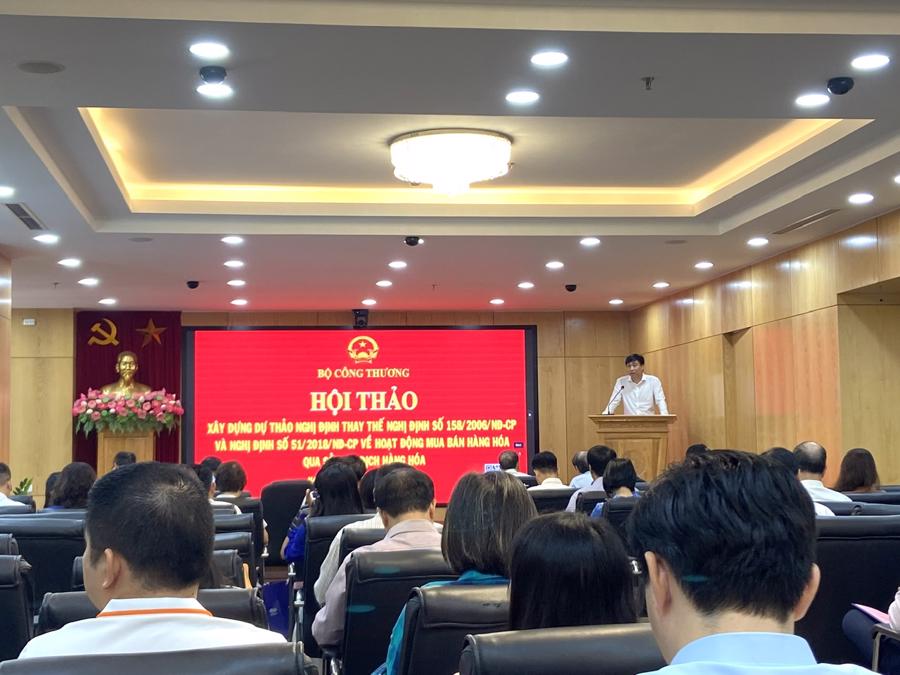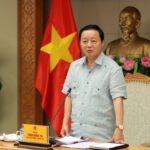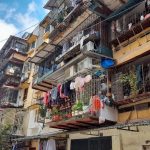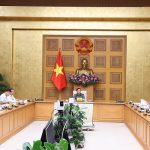On September 27, the Ministry of Industry and Trade organized a workshop to develop a draft decree to replace Decree No. 158/2006/ND-CP and Decree No. 51/2018/ND-CP on trading goods through the Vietnam Commodity Exchange (MXV)
Speaking at the workshop, Mr. Bui Nguyen Anh Tuan, Deputy Head of the Drafting Board and Head of the Decree Editing Team, stated that the 18-year process of guiding the implementation of the 2005 Commerce Law on trading goods through a commodity exchange, Decree No. 158/2006/ND-CP, Decree No. 51/2018/ND-CP, and related legal documents has created a legal framework for the development of commodity trading in Vietnam.
However, in recent years, the National Assembly has promulgated several laws that impact this field, such as the 2017 Foreign Trade Management Law, the 2018 Cyber Security Law, the 2018 Competition Law, the 2020 Investment Law, and the 2020 Enterprise Law.
In addition, the implementation of legal documents on trading goods through commodity exchanges has also revealed many shortcomings, problems, and overlaps that need to be addressed.
Moreover, Vietnam has participated in, negotiated, and signed many FTAs at both the bilateral and multilateral levels, leading to a need for building intermediary systems for the exchange of goods in import-export activities with international markets.

Therefore, to fulfill the task assigned by the Government, the Ministry of Industry and Trade has developed a draft decree to replace Decree No. 158/2006/ND-CP and Decree No. 51/2018/ND-CP on trading goods through commodity exchanges.
The draft decree consists of 16 chapters and 140 articles regulating the trading of goods through commodity exchanges and is currently open for public feedback.
At the workshop, Dr. Tran Van Binh, a commodity trading research expert and former MXV trader, raised the question of clarifying MXV’s current role.
Decree 158 stipulates: “Select the type of goods from the list specified in Article 32 of this Decree to organize the trading of goods through MXV.”
However, currently, there are no Vietnamese goods traded on the MXV or linked to physical delivery. “In 2022, I registered as a trading member of MXV. But when I actually joined, I was disappointed because there were no physical goods,” shared Mr. Binh.
The commodity exchange has no role at all. Is there really buying and selling goods through the commodity exchange as per Article 63 of the Commerce Law and Decree 158? Are there physical goods involved in the transactions?
Mr. Binh believes there aren’t any. “This is just a game of green and red lights, with all transactions based on rising and falling indices. There are no physical goods, not even 1%, and no Vietnamese products are currently traded on domestic or international exchanges. Commodity trading nowadays resembles gambling,” Mr. Binh emphasized.
Article 5 of Decree 51 also clearly mentions traders buying and selling goods through MXV, but most of the accounts opened are for speculation by individuals, and enterprises open accounts for risk hedging purposes, which is almost non-existent. Most enterprises open accounts at commercial banks for risk hedging in their import-export business as per Circular 40 of the State Bank.
Moreover, there is still no clearing and settlement center or commodity trading center. Therefore, MXV’s operations do not offer any benefits to the market but instead pose many risks to national security.
Hence, Dr. Binh suggested that a clearing and settlement center is mandatory. According to him, “If we are making a decree, there must be physical goods, even if it’s just 0.1%. There must be a warehouse and logistics system, and connections with large enterprises – this is the essence of commodity trading.”
Another issue is Article 49 on the Approval of Membership Qualifications of the Commodity Exchange, which states: “The Commodity Exchange shall not collect any fees other than the membership guarantee fee and the annual fee.” However, currently, when registering as a member, MXV collects a non-refundable fee of 150,000,000 VND. This seems unreasonable and requires clarification.
Furthermore, the decree stipulates that the clearing and settlement center is responsible for correctly executing the exchange rate fluctuations as prescribed by the State Bank and the Ministry of Finance when the commodity transaction is linked to a foreign country.
However, currently, all accounts of speculators do not benefit from these exchange rate fluctuations. Instead, MXV enjoys this interest, and the interest on exchange rate differentials is substantial in each trading session…
Regarding the security deposit for membership qualification, Mr. Binh frankly suggested that the decree should specify the amount and purpose of this deposit. The security deposit must be blocked and earn interest according to the State Bank’s regulations at the time of deposit.
The reason for including this in the decree, according to Mr. Binh’s analysis, is that currently, Clause 7, Article 3 of Decree 158 and Clause 14, Article 3 of this draft decree, state: “Security deposit for membership qualification is the act of a member depositing a sum of money or other valuables into a blocked account as specified by the Commodity Exchange to guarantee the performance of the member’s obligations.”
However, currently, the security deposit of MXV members is not deposited into a blocked account but into the exchange’s payment account. Is this legal, especially when they do not earn interest, at least the 2% deposit interest rate?
Elevating Penalties and Implementing Effective Remedies for “Misuse of Land” Offenses
On the afternoon of August 30th, Deputy Prime Minister Tran Hong Ha chaired a hybrid online and in-person meeting to discuss and provide feedback on the draft decree detailing administrative sanctions for violations in the land sector. The meeting was attended by representatives from ministries, localities, associations, and experts, showcasing the government’s commitment to collaborative decision-making.
Unlocking Solar Power: The Vice Premier Advocates for Self-Consumption and Net Metering for Rooftop Solar Projects
Vice Prime Minister Tran Hong Ha has instructed the Ministry of Industry and Trade to review the demand for load, transmission capacity, and system safety as a basis for adjusting plans and opening up opportunities for rooftop solar power, especially in the North.



















